Illustration
Implementing Decision No. 1244/2025/QD-CTN dated July 3, 2025 ofthe President on amnesty in 2025 (phase 2)
Permanent Deputy Prime Minister Nguyen Hoa Binh - Chairman of the Advisory Council for Special Amnesty has just signed Instruction 94/HD-HDTVDX on the implementation of Decision No. 1244/2025/QD-CTN dated July 3, 2025 of the President on special amnesty in 2025 (phase 2).
Subjects for amnesty consideration
According to the instructions, subjects eligible for amnesty include:
1- A person sentenced to a fixed-term prison term or life imprisonment that has been reduced to a fixed-term prison term and is serving his/her prison sentence in a prison or detention camp (prisoner).
2- People whose prison sentence is temporarily suspended.
Conditions for proposed amnesty
The Amnesty Advisory Council provides guidance on a number of provisions in Article 3 of the 2025 Amnesty Decision (phase 2) as follows:
1- The provision at Point a, Clause 1, Article 3 of the Decision on amnesty in 2025 (phase 2) is the provision at Point b, Clause 2, Article 2 of the Law amending and supplementing a number of articles of the Penal Code and Clause 1, Article 4 of Decree No. 52/2019/ND-CP dated June 14, 2019 of the Government detailing the implementation of a number of articles of the Amnesty Law.
According to the provisions of Point c, Point e, Clause 1, Article 18 of Decree No. 118/2024/ND-CP dated September 30, 2024 of the Government detailing the implementation of a number of articles of the Law on Enforcement of Criminal Judgments, the second quarter of prison sentence execution is classified on the last day of May. Therefore, by the time the prisons and detention camps meet to consider and propose amnesty, prisoners must have had enough quarters to be classified as fair or good for each sentence level and the following period from June 1 to the date the Council meets to consider and propose amnesty of the prisons and detention camps is commented on and assessed as having fair or good prison sentence execution results.
For prisoners whose prison sentences are temporarily suspended or who are subject to mandatory medical treatment measures and have returned to prison or detention camps to continue serving their sentences, in addition to the quarters when they have been classified as good or excellent for each level of sentence during their prison sentence, they must also be confirmed by the People's Committee of the commune where they reside, the military unit assigned to manage them during the period of temporary suspension or the medical facility that provided treatment during the period of mandatory medical treatment that during the period of temporary suspension or the period of mandatory medical treatment, they have strictly complied with the provisions of the law.
2- The time spent serving a prison sentence is the time spent in detention, temporary detention, serving a prison sentence in a prison or temporary detention camp, not including the time spent on bail, deferred, temporarily suspended, and time reduced served a prison sentence. The time spent under mandatory medical treatment during the investigation, prosecution, trial, and execution of the sentence is also counted towards the time spent serving a prison sentence.
The time of reduction of the prison sentence is calculated to be deducted from the remaining prison sentence.
For example: Nguyen Van A was sentenced to 12 years in prison, arrested on August 31, 2016, as of August 31, 2025, Nguyen Van A has actually served 9 years, has had his prison term reduced 3 times, a total of 2 years, then the remaining prison term is 1 year.
3- Regarding the provisions on implementing additional penalties such as fines, payment of court fees, performance of obligations to return property, compensation for damages, and other civil obligations
a) Prisoners or people who are temporarily suspended from serving their prison sentences and have not completed the additional penalty of a fine or payment of court fees, but are decided by the Court to be exempted from the fine or payment of court fees, are also eligible as prescribed in Point c, Clause 1, Article 3 of the Decision on special amnesty in 2025 (phase 2).
b) Prisoners or people prison sentences are temporarily suspended whose completed their obligations to return property, compensation for damages, and other civil obligations as prescribed in Point d, Clause 1, Article 3 of the Decision on amnesty in 2025 (Phase 2) which is one of the cases prescribed in Clause 2, Article 4 of Decree No. 52/2019/ND-CP. In addition, the following cases are also considered to have completed compensation for damages and other civil obligations:
- In case of having to perform the maintenance obligation, the maintenance obligation must be completely performed according to the judgment or decision of the Court or the maintenance obligation has been performed once, confirmed by the People's Committee of the commune where the person resides or the civil enforcement agency handling the case. If the maintenance obligation has only been partially performed or the maintenance obligation has not been performed but there is an agreement or confirmation from the legal representative of the victim or the person receiving maintenance that the maintenance obligation does not have to be continued or is not required to be performed according to the judgment or decision of the Court and confirmed by the People's Committee of the commune where the person resides or the civil enforcement agency handling the case, it is also considered to have been performed.
- In case the offender is a person under 18 years old as prescribed in Point d, Clause 3, Article 3 of the Decision on special amnesty in 2025 (phase 2), and in the judgment or decision of the Court assigning the responsibility for compensation for damages and other civil obligations to the father, mother or legal representative, there must be documents to prove that the father, mother or legal representative has completed the compensation for damages or other civil obligations, including: Receipts, invoices, documents showing this or the Decision to suspend the enforcement of the judgment of the Head of the competent civil judgment enforcement agency or the agreement document of the person subject to enforcement or that person's legal representative on not having to perform compensation for damages and other civil obligations according to the judgment or Decision of the Court confirmed by the People's Committee of the commune where the offender resides or the civil judgment enforcement agency handling the case or other documents this.
c) In case a person sentenced to imprisonment has fulfilled part of the obligation to return property, compensation for damages, or other civil obligations but due to being in particularly difficult economic circumstances, he/she is not yet able to continue to fulfill the remaining part according to the provisions of the law on civil judgment enforcement as prescribed in Point d, Clause 1, Article 3 of the Decision on amnesty in 2025 (phase 2), this is the case prescribed in Clause 3, Article 4 of Decree No. 52/2019/ND-CP.
4. Regarding the regulation that amnesty does not seriously affect security and order at Point e, Clause 1, Article 3 of the Decision on amnesty in 2025 (phase 2), the following criteria must be considered:
- Personal background, family circumstances of the prisoner, risk of affecting the work of ensuring security, order and fighting crime in the locality.
- Causing mass complaints, demonstrations, and disturbances for hostile forces to take advantage of, entice, and incite against the government, distorting the Party's guidelines and the State's policies and laws.
- Causing confusion, fear or anger among the people.
- Causing difficulties in implementing the Party's guidelines and the State's policies and laws.
After the meeting results of the Council for consideration and proposal of special pardon, the prisons and detention camps send the list of prisoners eligible for special pardon to the Standing Agency of the Special Pardon Advisory Council for synthesis and request the local police to determine factors affecting security and order. Based on the verification results of the local police, the Standing Agency of the Special Pardon Advisory Council synthesizes and proposes the Special Pardon Advisory Council to consider and decide at the meeting of the Special Pardon Advisory Council.
5. Cases of having made great achievements during the time of serving a prison sentence, suffering from a serious illness, being frequently ill and unable to take care of themselves, having particularly difficult family circumstances and being the sole breadwinner in the family as prescribed in Clause 3, Article 3 of the Decision on special amnesty in 2025 (phase 2) are cases prescribed in Clause 4, Clause 5, Clause 6, Clause 7, Article 4 of Decree No. 52/2019/ND-CP.
Cases not recommended for amnesty
To properly implement the provisions of Article 4 of the Decision on amnesty in 2025 (phase 2), the Amnesty Advisory Council provides specific guidance on a number of contents as follows:
1- The basis for determining the cases specified in Clause 8, Article 4 of the Decision on amnesty in 2025 (phase 2) is the points, clauses, and articles in the Penal Code that the Court applies when deciding on the penalty.
In the case of robbery using weapons as prescribed in Clause 8, Article 4 of the Decision on amnesty in 2025 (phase 2), in addition to the above basis, it is also necessary to base on the provisions of legal documents on the management and use of weapons, explosives and supporting tools in effect at the time the person sentenced to imprisonment committed the crime (Ordinance on Management and Use of Weapons, Explosives and Supporting Tools; Law on Management and Use of Weapons, Explosives and Supporting Tools) to determine whether the object used by the offender to commit the crime is a weapon or not.
2. The basis for confirming illegal use of narcotics in the case specified in Clause 13, Article 4 of the Decision on amnesty in 2025 (phase 2) is the documents in the prisoner's file and the file of the decision on temporary suspension of the execution of the prison sentence (for those whose prison sentence is temporarily suspended) such as: Verdict; Indictment; documents of the Investigation Agency; test results of the medical agency; self-declaration of the prisoner or the person whose prison sentence is temporarily suspended admitting that he/she has illegally used narcotics, clearly stating the time and number of times he/she has used narcotics...; health examination certificate of the prisoner's detention facility; other documents of the prisoner's detention facility or competent authority determine that the prisoner or the person whose prison sentence is temporarily suspended has illicit used narcotics.
Organization to release people on September 1, 2025
Regarding the implementation time, from July 20, 2025 to August 2, 2025, the Interdisciplinary Appraisal Teams will directly visit units and localities to inspect and appraise records and lists of proposed pardons.
From July 24, 2025 to August 8, 2025, the Standing Committee of the Amnesty Advisory Council will compile documents and send the list to members of the Amnesty Advisory Council for research and evaluation.
From August 8, 2025 to August 18, 2025, the Standing Committee of the Amnesty Advisory Council and the Supreme People's Court will compile the opinions of the members of the Amnesty Advisory Council and prepare documents, a list of people eligible for amnesty, and a list of people ineligible for amnesty to submit to the Advisory Council for review.
From August 24, 2025 to August 26, 2025, the Amnesty Advisory Council will meet to review the amnesty list.
From August 27, 2025 to August 28, 2025, the Standing Committee of the Amnesty Advisory Council will compile and complete the amnesty list and submit it to the President for decision.
Hold a press conference to announce the President's amnesty decision on August 30, 2025.
The organization releases people who are granted amnesty according to the President's Decision on September 1, 2025.
The work of evaluating and classifying OCOP products is divided into 02 levels.
Amending and supplementing a number of contents of Decision No. 148/QD-TTg on approving the set of criteria and process for evaluating and classifying products of the One Commune One Product Program.
Deputy Prime Minister Tran Hong Ha signed Decision No. 1489/QD-TTg dated July 6, 2025 amending and supplementing a number of contents of Decision No. 148/QD-TTg on approving the set of criteria and process for evaluating and classifying products of the One Commune One Product (OCOP) Program.
It is known that Decision No. 148/QD-TTg dated February 24, 2023 of the Prime Minister decentralizes the People's Committees at the district level to evaluate and recognize 3-star OCOP products; the People's Committees at the provincial level to evaluate and recognize 4-star OCOP products; the Central Government evaluates and recognizes 5-star OCOP products (national OCOP). However, in the context of the current local government organization model consisting of 2 levels (province and commune), some regulations in the OCOP Criteria Set according to Decision 148/QD-TTg are no longer suitable.
Therefore, the Prime Minister issued Decision No. 1489/QD-TTg dated July 6, 2025 amending and supplementing a number of contents of Decision No. 148/QD-TTg to suit the development goals of the OCOP Program for the 2021-2025 period and meet practical requirements in localities.
In particular, Decision No. 1489/QD-TTg amends and supplements the assessment and classification of OCOP products; transfers the task of assessing and classifying 3-star OCOP products from the district level to the provincial level to create stability and avoid disruption during the implementation process.
According to the new regulations, the work of evaluating and classifying OCOP products is divided into 2 levels: Provincial level and central level.
The order of evaluation and classification of OCOP products is as follows:
- People's Committees of communes and wards (Commune-level People's Committees): (1) Organize the assessment of some contents of the Product Profile registered to participate in the OCOP product assessment, including the following criteria: origin of local products/raw materials; use of local labor; origin of product ideas; local identity/intelligence; based on the actual conditions and characteristics of the locality, the Chairman of the Commune-level People's Committee organizes a meeting with relevant departments to get opinions on the contents assessment, then issues the Assessment Report of the Commune-level People's Committee on the above criteria; (2) Receive and check the format of the dossiers registered by the subjects and send a written request to the Provincial People's Committee to assess and classify products in the commune.
- Assessment work at the provincial level: The Chairman of the Provincial People's Committee establishes a Council, an Advisory Group for the Provincial OCOP Product Assessment and Classification Council (Provincial Council) and issues the Council's Operating Regulations (if necessary, the Chairman of the Provincial People's Committee authorizes the Head of the provincial professional agency to chair the Council and be responsible for the results of the OCOP product assessment and classification).
The provincial council organizes the evaluation and ranking of products proposed by the commune-level People's Committee.
The Chairman of the Provincial People's Committee issues a Decision approving the evaluation results and Certificates for 3-star and 4-star products and announces the results.
In case the evaluation result is that the dossier is invalid according to regulations, or does not achieve 3 stars or more, the Provincial People's Committee will return the result (in writing) and the dossier to the Commune People's Committee to guide and support the subjects in developing the product.
Provincial People's Committees transfer dossiers of products scoring from 90 to 100 points to the Ministry of Agriculture and Environment to request evaluation, classification, and recognition of national OCOP products.
- Assess work at the central level
+ The Minister of Agriculture and Environment establishes the Council, the Advisory Group of the Central-level OCOP Product Evaluation and Classification Council (Central-level Council) and promulgates the Council's Operating Regulations.
+ The Central Council organizes the evaluation and classification of products proposed by the Provincial People's Committee.
+ The Ministry of Agriculture and Environment issues a Decision approving the evaluation results and Certificates for 5-star products (national OCOP products), and organizes the announcement of the results.
+ In case the evaluation result does not reach 5 stars, the Central Council will return the result (in writing) and documents to the Provincial People's Committee:
For products that do not achieve 90 points but above 70 points, the Provincial People's Committee can base on the assessment results of the Central Council to issue a decision to recognize 4 stars, issue a 4-star Certificate or organize assessment and classification according to decentralized authority.
For products whose dossiers are assessed by the Central Council as invalid according to regulations, the Provincial People's Committee shall complete the dossier, evaluate and classify the products according to the decentralized authority.
Regulations on organization and operation of the Steering Committee for science, technology, innovation, digital transformation development and Project 06
Regulations on organization and operation of the Steering Committee for science, technology, innovation, digital transformation development and Project 06
Prime Minister Pham Minh Chinh - Head of the Government's Steering Committee on Science, Technology, Innovation, Digital Transformation and Project 06 signed Decision No. 96/QD-BCĐCP promulgating the Regulation on organization and operation of this Steering Committee.
Working principles of the Steering Committee
According to the Regulations, the Steering Committee works according to the principle of democratic centralism, collective discussion, and the Head of the Steering Committee concluded for implementation.
The Steering Committee and its members, the Working Groups and their members shall promote their roles and responsibilities to the highest level but shall not replace the functions and tasks of agencies, organizations and heads of agencies and organizations in the state administrative system; shall promote the personal responsibility of the Steering Committee members in the activities of the Steering Committee and in the performance of assigned duties and tasks; shall handle work in accordance with the assigned authority and responsibilities, in accordance with the order and procedures prescribed by law and the provisions of this Regulation.
Members of the Steering Committee shall proactively direct the implementation of tasks, enhance coordination of work, and exchange of information in handling work according to assigned functions, tasks, and powers; ensure the requirements of coordination of work and exchange of information in handling assigned tasks. In case of different opinions, promptly report and ask for the opinion of the Head of the Steering Committee for consideration and decision.
The Steering Committee works in the following forms: Organizing regular meetings; ad hoc meetings; organizing conferences and seminars; giving opinions in writing; organizing inspection and supervision teams.
General duties and powers of the Working Groups
The Regulations clearly state the general duties and powers of the Steering Committee's Working Groups.
formation, the Working Groups are responsible for promulgating the Regulations on the organization and operation of the Working Group and designing the Standing Body of the Working Group; complete the members of the Working Group when there are changes or when necessary; ensure the necessary conditions for the activities of the Working Group and use the seal of their agency for the activities of the Working Group.
Implement the directions and conclusions of the Head of the Steering Committee related to assigned functions and tasks; promptly report issues arising in the process of implementing assigned tasks and proposes initiatives and solutions to remove obstacles and difficulties through the Standing Body of the Steering Committee.
The Working Groups are mobilized with domestic and foreign consultants to perform tasks when necessary. They are responsible for protecting state secrets when the experts are working and performing other tasks assigned by the Head of the Steering Committee.
In which, the Working Group on science, technology development, innovation and digital transformation has the following tasks:
Research and propose to the Government, the Prime Minister and the Steering Committee to implement tasks on science, technology development, innovation and digital transformation (except for prompting tasks related to digital transformation associated with Project 06) national. Assist the Steering Committee in researching and promoting policies, strategies, mechanisms, policies (including financial mechanisms) and solutions for science, technology development, innovation and digital transformation.
Advise the Head of the Steering Committee on tasks related to science, technology development, innovation and digital transformation in the annual programs and action plans of the Steering Committee. Urge and monitor progress and implementation results; send periodic reports to the Standing Body of the Steering Committee to serve the regular and ad hoc meetings of the Steering Committee.
Working Group implementing Project 06; administrative procedure reform, digital transformation associated with Project 06:
Research and propose to the Government, Prime Minister, and Steering Committee to implement the tasks of Project 06; urge related tasks to administrative procedure reform and digital transformation associated with Project 06 national. Assist the Steering Committee in researching and considering policies, strategies, mechanisms, policies (including financial mechanisms) and solutions for developing applications of population data, identification and electronic authentication to serve national digital transformation.
Advise the Head of the Steering Committee on tasks related to the development of population data applications, electronic identification and authentication to serve national digital transformation in the annual programs and action plans of the Steering Committee. Urge and monitor progress and implementation results; send periodic reports to the Standing Body of the Steering Committee to serve the regular and ad hoc meetings of the Steering Committee.
Administrative Reform Working Group:
Research and propose to the Government, Prime Minister, and Steering Committee to implement administrative reform tasks (except for promoting administrative reform procedure associated with Project 06) nationally. Assist the Steering Committee in researching and referring to policies, strategies, mechanisms, policies (including financial mechanisms) and solutions on administrative reform.
Advise the Head of the Steering Committee on administrative reform tasks in the Steering Committee's annual program and action plan. Urge and monitor progress and implementation results; send periodic reports to the Steering Committee's Standing Body to serve the Steering Committee's regular and ad hoc meetings.
Duties and powers of the Standing Body of the Steering Committee
The Ministry of Science and Technology acts as the Standing Body of the Steering Committee, responsible for developing and submitting to the Head of the Steering Committee for approval of the Regulations on the organization and operation of the Steering Committee; developing decisions to add or replace members of the Steering Committee under the direction of the Head of the Steering Committee.
Develop and submit to the Head of the Steering Committee for promulgation the annual work program, plan, inspection and supervision of the Steering Committee and monitor and urge the implementation. Preside over and coordinate with the Working Groups to assist the Steering Committee in synthesizing and preparing content and documents for the activities and meetings of the Steering Committee. Report on the implementation of the programs and plans of the Steering Committee and the conclusions and directions of the Head of the Steering Committee and Deputy Heads of the Steering Committee.
Directly work with and request ministries, branches and localities to coordinate in providing necessary information for the activities of the Steering Committee and report and advise the Steering Committee to authorize authorities to commend and reward collectives and individuals with outstanding achievements in performing tasks according to the provisions of law on emulation and commendation.
The standing body of the Steering Committee is responsible for keeping records and documents related to the activities of the Steering Committee; ensure necessary conditions for the activities of the Steering Committee and performing other tasks assigned by the Head of the Steering Committee and Deputy Head of the Steering Committee.
Members of the Steering Committee and Working Groups work part-time. The Head of the Steering Committee and Deputy Heads of the Steering Committee are Government leaders who use the Prime Minister's seal, while other members use the seals of their agencies.
Exhibition of National Achievements on the occasion of the 80th anniversary of National Day held at the National Exhibition Center, Co Loa, Dong Anh, Hanoi.
Conclusion of Deputy Prime Minister Mai Van Chinh at the meeting on solutions to remove difficulties and obstacles in financial policies and mechanisms of the National Achievement Exhibition on the occasion of the 80th anniversary of National Day
The Government Office issued Notice No. 348/TB-VPCP on the conclusion of Deputy Prime Minister Mai Van Chinh at the meeting on solutions to remove difficulties and obstacles in financial policies and mechanisms of the National Achievements Exhibition on the occasion of the 80th anniversary of National Day.
In the above announcement, the Deputy Prime Minister welcomed the Ministry of Finance and the Ministry of Culture, Sports and Tourism for proactively and actively preparing the budget for the organization of the Exhibition. This is a very important event to celebrate the 80th anniversary of National Day, so the requirements for scale and magnitude are very high to serve the people and international visitors.
As there is not much time left until the Exhibition, the Deputy Prime Minister requested the Ministry of Finance, the Ministry of Culture, Sports and Tourism and other agencies and localities to urgently focus on implementing tasks and solutions under the direction of the Party, State, Government, Prime Minister, Deputy Prime Minister and the Exhibition Steering Committee.
In particular, the Deputy Prime Minister requested the Ministry of Finance to urge the Ministry of Foreign Affairs and the localities: Lai Chau, Khanh Hoa, Hai Phong and Ho Chi Minh City to urgently send the proposed budget for organizing the Exhibition to the Ministry of Finance for review, synthesis, and reporting to the Prime Minister and Deputy Prime Minister Ho Duc Phoc for consideration and decision before July 7, 2025.
At the same time, the Ministry of Finance shall preside over and coordinate with the Ministry of Culture, Sports and Tourism and relevant agencies to promptly issue written instructions (before July 7, 2025) on unit prices, spending norms, contractor selection mechanisms, special mechanisms (if any) and related issues in performing the tasks of the Exhibition, ensuring compliance with current legal regulations for ministries, branches, central and local agencies to implement.
The Ministry of Culture, Sports and Tourism guides and supports ministries, branches, central organizations, agencies and localities in handling issues related to the organization of exhibitions, design, display, etc. to ensure that they are both beautiful, attractive and in harmony with the ideas of the design consultant and the approved project.
Urgently discussed with the Ministry of Justice to agree on the form of promulgation of the Project for organizing the Exhibition; if necessary, recommend Deputy Prime Minister Mai Van Chinh to make appropriate adjustments to ensure compliance with legal regulations.
At the same time, the Ministry of Culture, Sports and Tourism drafted the Prime Minister's Official Dispatch directing Ministers, Heads of ministerial-level agencies, Government agencies, Heads of relevant Central agencies, Chairmen of People's Committees of provinces and centrally run cities to focus on implementing the organization of the Exhibition; report to the Prime Minister on July 8, 2025.
Review and proactively develop detailed plans for each specific task and activity from now until the event is organized, ensuring details and specificity down to each day in the spirit of "6 clear: clear people, clear work, clear responsibility, clear authority, clear time, clear results", regularly urge and inspect implementation; promptly report to competent authorities on issues beyond authority./.
Source: https://baochinhphu.vn/chi-dao-dieu-hanh-cua-chinh-phu-thu-tuong-chinh-phu-ngay-6-7-2025-102250706201752946.htm


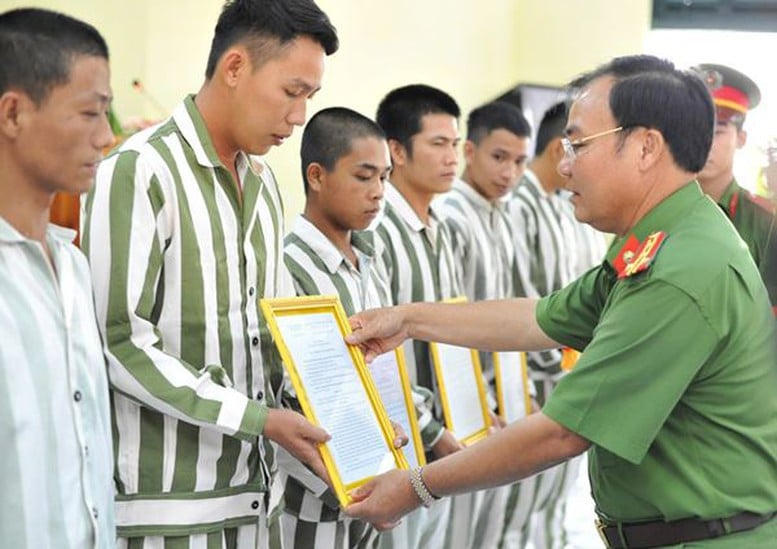
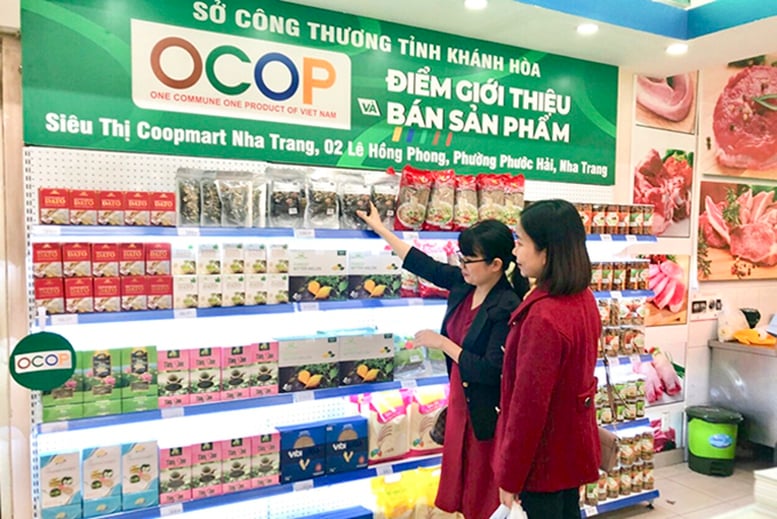

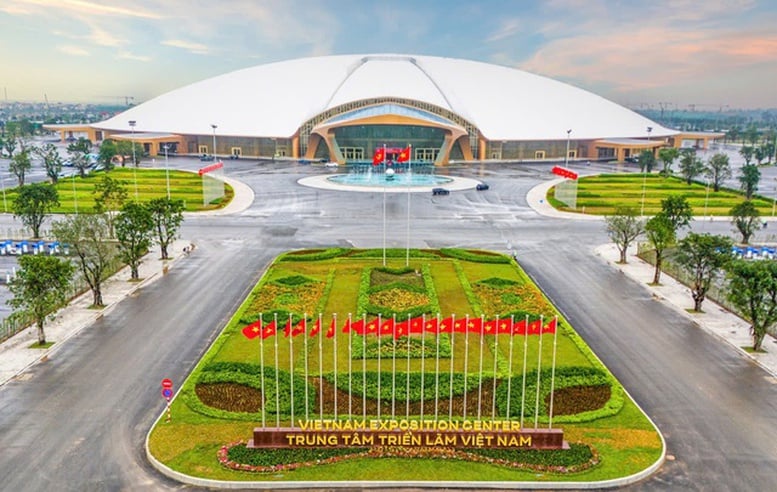








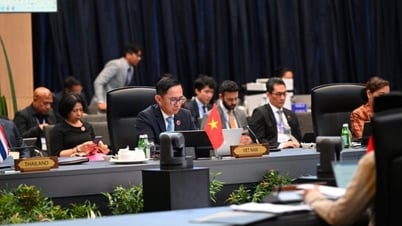

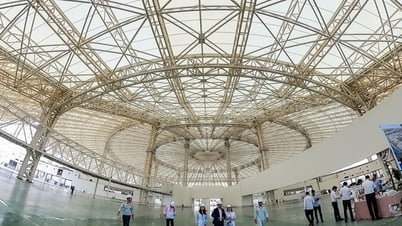

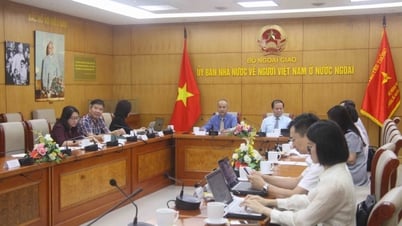





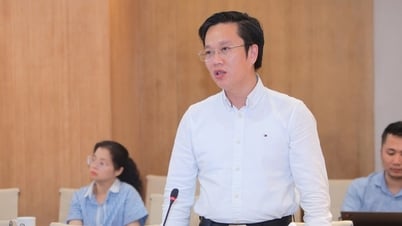
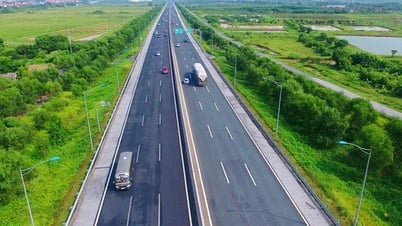
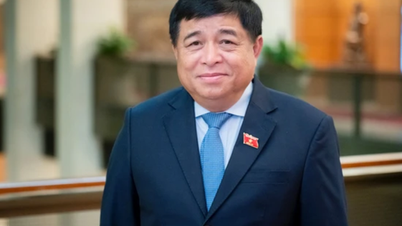
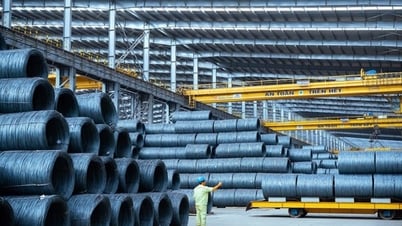
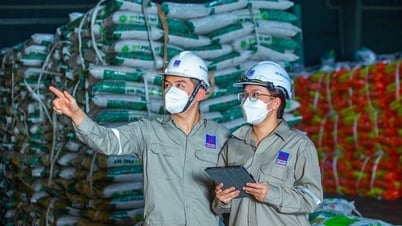


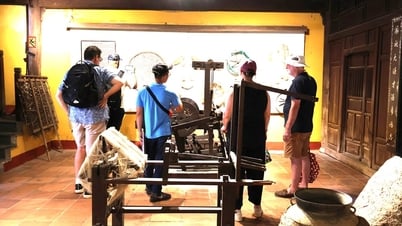

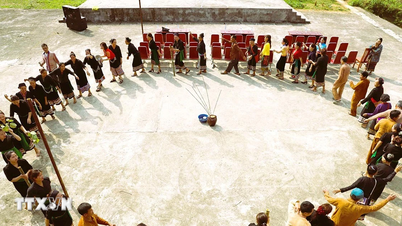
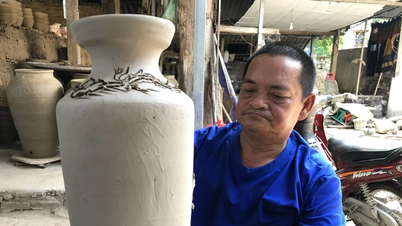





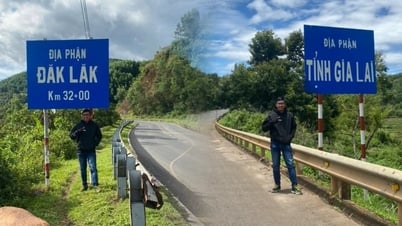

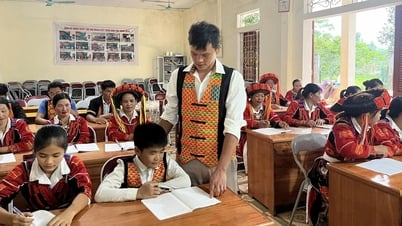



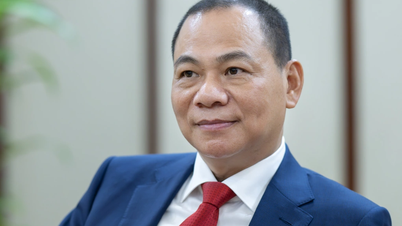



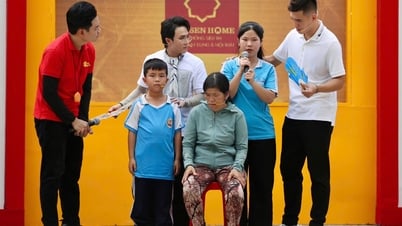

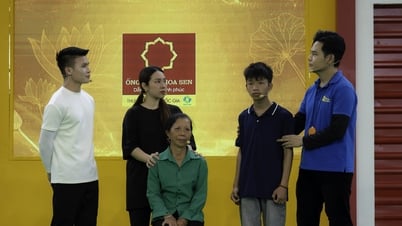
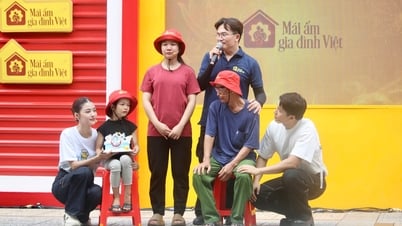


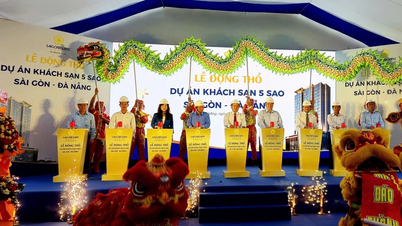

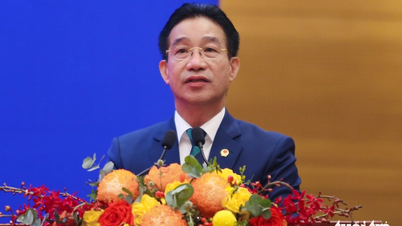
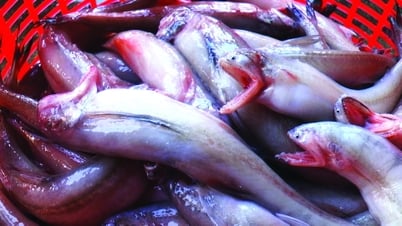



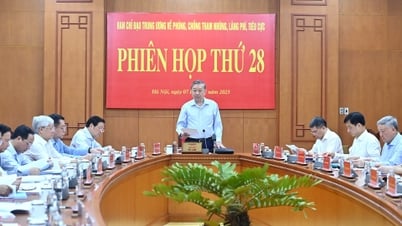

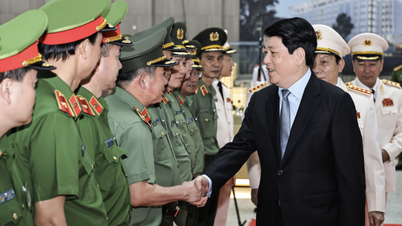
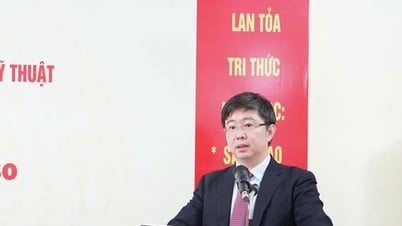



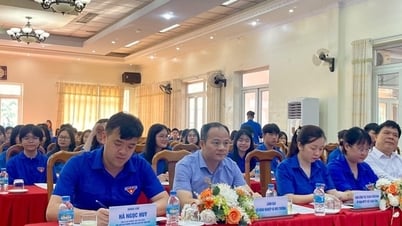
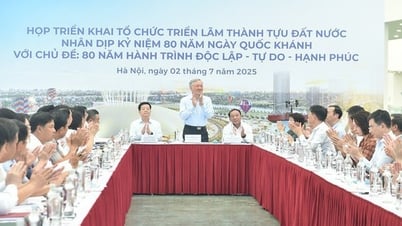
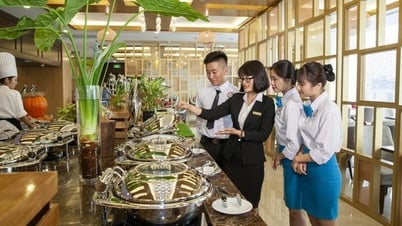

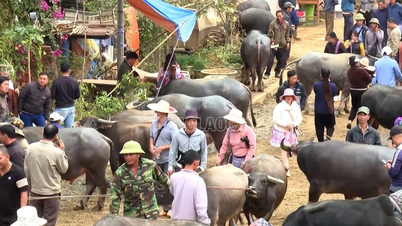

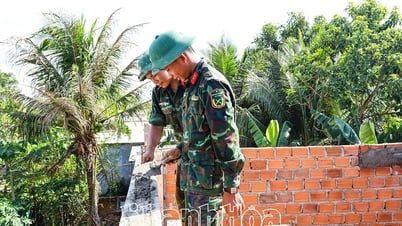

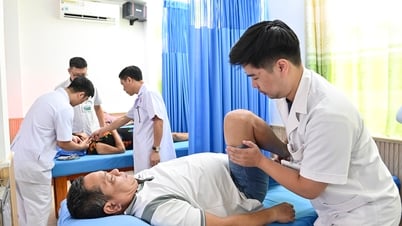
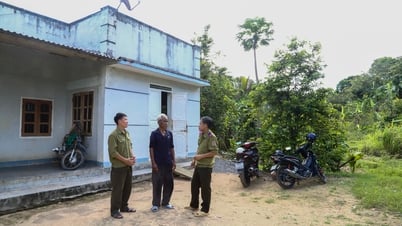


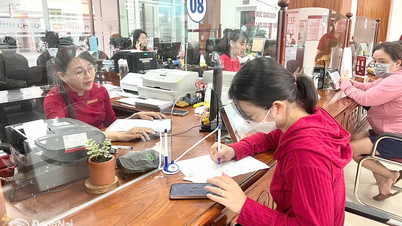












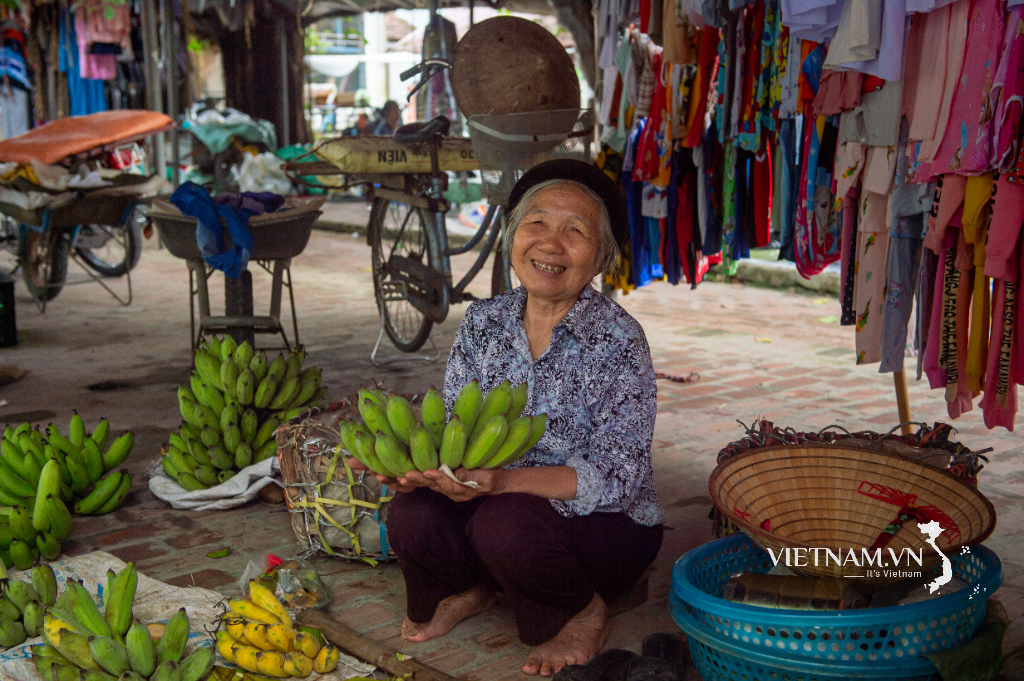


Comment (0)